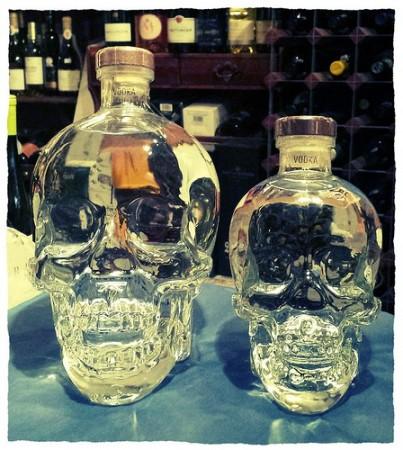
Drinking may be a well-accepted social behaviour in Russia, but this popular culture of alcoholism is actually making its people live shorter lives, a new study says.
Alcoholism in Russia has long been a topic of discussion across the whole world. In 2002, nearly 30,000 people got killed by drunken driving and in 2001, nearly 47,000 deaths related to alcohol poisoning were registered by the Health Ministry in Russia. Data released in 2011 showed that the country lost 5, 00,000 people to alcohol -related incidents in 2009.
A study published in BMJ cited climate, unemployment problems, culture and stress playing a major role in forcing Russians to consume more alcohol, making it the fourth country in Europe to consume large volume of alcohol every year. In addition to that, the wide-spread availability and cheap cost also helped strengthen the alcohol culture. It is estimated that an average Russian drinks 1350 pints of beer and 90 bottles of vodka a year, compared to 470 pints of beer and 31 glasses of wine consumed by an American citizen.
In the new study, researchers looked at 1, 51,000 Russian adults and found that excess consumption of alcohol, particularly vodka and tobacco contributed to premature mortality in Russia. It was found that 25 percent of its men did not live beyond the age of 55.
These findings are based on an investigation conducted by researchers from Russia (Russian Cancer Research Centre in Moscow), UK (Oxford University) and France (WHO International Agency for Research on Cancer -IARC). At the beginning of the study, researchers collected and recorded drinking habits of the participants. During the 10-year-follow-up, 8000 participants died. Drinking three or four bottles of vodka weekly more than doubled risk of mortality (35 percent) compared to consuming less than one bottle (16 percent) per week.
People addicted to vodka died mainly through accidents, alcohol poisoning, suicide, violence or life-threatening conditions like cancers of liver, throat; diseases related to liver, heart; pneumonia and tuberculosis.
Concerned with the findings, researchers urged Russian to stay away from heavy drinking and strongly recommended the introduction of powerful laws to prevent this occurrence in the future.
"The significant decline in Russian mortality rates following the introduction of moderate alcohol controls in 2006 demonstrates the reversibility of the health crisis from hazardous drinking. People who drink spirits in hazardous ways greatly reduce their risk of premature death as soon as they stop," Study leader Professor David Zaridze from the Russian Cancer Research Centre in Moscow, said in a news release.
Dr Jürgen Rehm from the Centre for Addiction and Mental Health in Toronto, Canada, added : "Since the average life expectancy from birth for men in Russia is still only 64 years, ranking among the lowest 50 countries in the world, more effective alcohol and tobacco policy measures are urgently needed."
The study has been reported in The Lancet.















